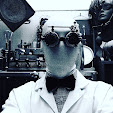After this shock, however, the plain fact emerged that they were already fifty thousand leagues from the earth, and that they were still going up. Cambridge Observatory had certainly miscalculated, but by a lucky chance the starting speed, "under the power of the 400,000 lbs. of gun cotton," must have been much greater than that supposedly needed.
Michel Ardan had bought with him in the aerial car chess, draughts, cards and dominoes, not only for their own amusement but for the enjoyment of the inhabitants of the moon!
"My friend," said Barbicane, "it the moon is inhabited, its inhabitants must have appeared some thousands of years before those of earth, for we cannot doubt that their star is much older than ours. If then these Selenites have existed these hundreds of thousands of years, and if their brain is of the same organisation as the human brain, they have already invented all that we have invented, and even what we may invent in the future ages. They have nothing to learn from us, and we have everything to learn from them."
"What!" said Michel; "you believe that they have artists like Phideas, Michael Angleo, or Raphael?"
"Yes."
"Poets like Homer, Virgil, Milton, Lamartine, and Hugo?"
"I am sure of it."
"Philosophers like Plato, Aristotle, Descartes, Kant?"
"I have no doubt of it."
"Scientific men like Archimedes, Euclid, Pascal, Newton?"
"I could swear it."
"Comic writers like Arnal, and photographers like Nadar?"
"Certain."
"Then, friend Barbicane, if they are as strong as we are, and even stronger - these Selenites - why have they not tried to communicate with the earth? Why have they not launched a lunar projectile to our terrestrial regions?"
"Who told you that they have never done so?" said Barbicane, seriously.
"Indeed," added Nicholl, "it would be easier for them than for us, for two reasons; first, because the attraction on the moon's surface is six times less than on that of the earth, which would allow a projectile to rise more easily; secondly, because it would be enough to send such a projectile only at 8,000 leagues instead of 80,000, which would require the force of projection to be ten times less strong."
"Then," continued Michel, " I repeat it, why have they not done it?"
"And I repeat," said Barbicane; "who told you that they have not done it?"
"When?"
"Thousands of years before man appeared on earth."
"And the projectile - where is the projectile? I demand to see the projectile."
"My friend," replied Barbicane, "the sea covers five-sixths of our globe. From that we may draw five good reasons for supposing that the lunar projectile, if ever launched, is now at the bottom of the Atlantic or the Pacific, unless it sped into some crevasse at that period when the crust of the earth was not yet hardened."
"Old Barbicane," said Michel, " you have an answer for everything, and I bow before your better wisdom. But there is one hypothesis that would suit me better than all the others, which is, that the Selenites, being older than we, are wiser, and have not invented gunpowder."
Among the livestock Michel Ardan was taking to the moon were two dogs, one of which died and was thrown out into space. This burial accomplished without mishap, the astronauts did not fear to dispose of rubbish and waste in the same way, but to their astonishment nothing dropped away; everything they jettisoned into the airless void followed in their train to the moon, including the dead dog!
This was only one of the many curious phenomena that came into their experience as they tore through space on the strangest journey ever undertaken by men. The moon became an enormous disc, which, it seemed, they could grasp it they stretched out their hands. They had expected to land on the northern hemisphere, but it became clear to Barbicane as they drew nearer to the moon that in some unaccountable way the course of the projectile had altered slightly. He could not understand why, and he did not convey his fears to his companions.
If they should miss the moon it would mean that they would be carried on into an even greater unknown - into interplanetary space.
Thursday, 26 August 2010
Subscribe to:
Post Comments (Atom)






0 comments:
Post a Comment